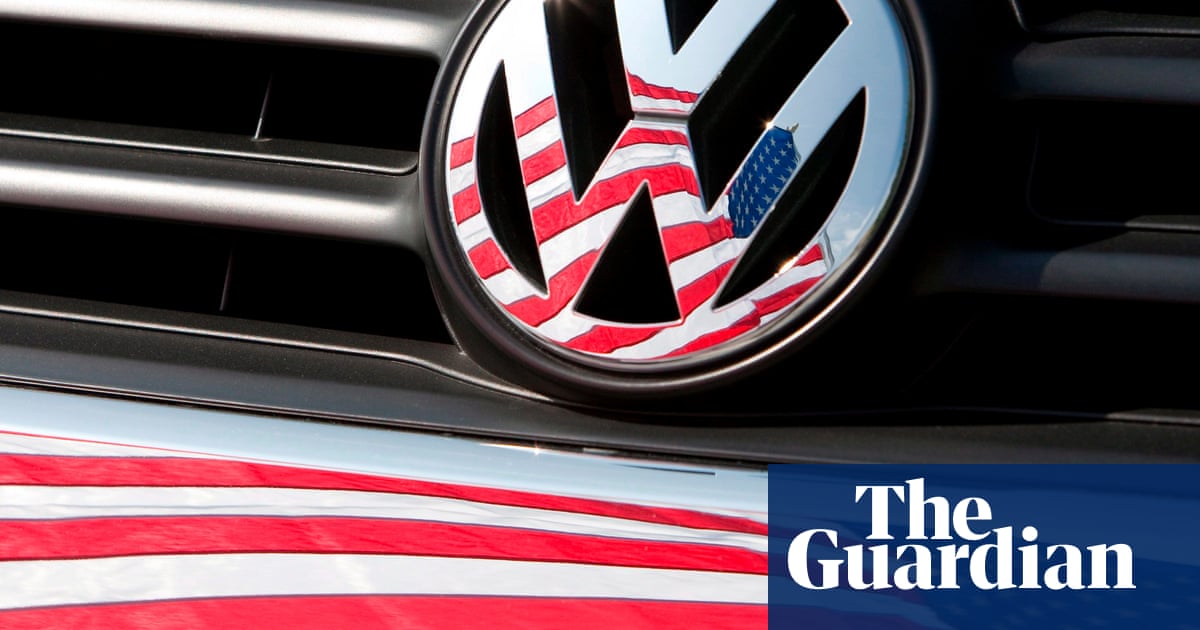Volkswagen, Europe’s largest industrial group, has said it will make a “massive” investment in the US. The group, which includes Porsche, revealed it has been in direct talks with Donald Trump’s administration as it faces damaging tariffs.
Oliver Blume, who heads the group, said the talks were “constructive” and “fair”, in an interview that suggests the company, whose market capital is £44bn, is not willing to leave tariff negotiations to Brussels alone.
Speaking to Süddeutsche Zeitung, Blume said he had been to Washington himself and had a direct line to the US commerce secretary, Howard Lutnick, but had agreed to keep details of the talks confidential.
He hoped that plans for substantial investment would help shape Trump’s ultimate decision on the 25% tariffs the US imposed on auto imports in April.
“Our primary contact is the US secretary of commerce, but ultimately, the issues also go through the US president’s desk,” he said. “So far, we’ve experienced absolutely fair, constructive discussions. Of course, many things are complex, and we’ve agreed not to share any content. I will stick to that.”
His interview comes ahead of the latest round of talks between the EU and the US, with Maroš Šefčovič, the EU commissioner for trade, expected to meet Lutnick on the sidelines of an OECD council meeting in Paris on Tuesday.
There is a widespread expectation that whatever the outcome of the talks, a baseline tariff of about 10% will probably endure beyond the July expiry date of Trump’s 90-day pause.
Blume said he was talking to Washington on behalf of Volkswagen, but always had “an eye on solutions that can be applied universally”.
He said the Volkswagen Group “intends to continue investing in the US” and would build on its partnership with the American electric vehicle manufacturer Rivian with “further, massive investments”.
In a reference to the tariff talks, he added: “All of this should play a role in decisions”.
The past year has already been one of the group’s most challenging, with sales of Chinese electric vehicles in the EU soaring, and Volkswagen not yet in the market with an entry-level rival.
Trump’s tariffs on car imports will hit Porsche particularly hard as – unlike VW models and German counterparts BMW and Mercedes-Benz – Porsche cars sold in the US are almost exclusively manufactured inGermany.
The failure of the German auto sector to anticipate the onslaught of competition from China is seen as a symptom of a wider malaise in the sector, with Volkwagen planning to cut 35,000 jobs by 2030.
In March, the company revealed a30% year-on-year drop in net profitsowing to high production costs and decreased sales in China.
Asked what was the biggest mistake made by German manufacturers, Blume said “we’ve rested on our laurels for too long” and “realised too late that the world is changing extremely rapidly and dynamically”.
The German car industry needed to stop spending “endless time … debating”, and instead needed to “decide and act”, he said.
Sales of Chinese electric vehicles in the EU have more than trebled between 2019 and 2023, according to industry figures, with 10% tariffs imposed by Brussels in 2024 slowing growth.
However, the EU still believes China is not doing enough to create a level playing field and faces fresh concerns that Chinese goods, originally destined for the US, will be diverted to Europe in the long term.
Blume defended the company’s electric vehicle strategy, saying it would be launching VW, Cupra and Skoda EVs for about €25,000, followed by a cheaper entry-evel car tagged the “ID.EVERY1”.
He admitted that job cuts were “painful” but said “something has to happen” if the company “wants to survive long term”.
